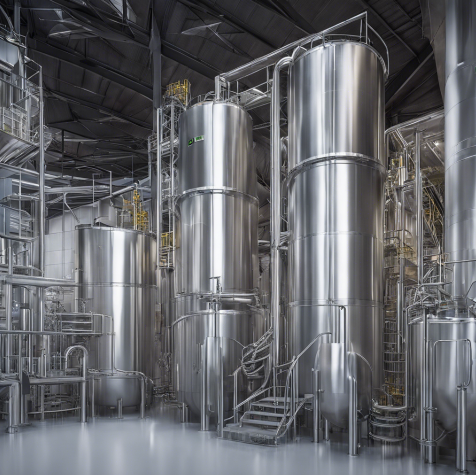Sometimes we have to understand that not all that glitters is gold.
When we analyze the use of the word “green,” we are often misguided by elements that seem to be ecological or even very natural or sustainable. In reality, it’s important to delve deep into the elements and variables that justify the description of a certain process. One good example is the use of biofuels, specifically when we talk about bioethanol.
Have you ever thought about the fact that the fermentation of sugar generates alcohol at the same time it generates CO2, carbon dioxide? The generation of CO2 in fermentation accounts for almost 50% in weight of the alcohol produced. So, if we are producing, like many plants in the USA, 10 million gallons of ethanol, we could very easily be adding some 20 thousand tons of CO2 into the atmosphere.
This hidden environmental impact of biofuels is often overlooked when discussing their benefits. While bioethanol is often touted as a greener alternative to traditional fossil fuels, it’s important to consider the full lifecycle impact of its production.
One common argument in favor of biofuels is that they are derived from renewable resources, such as crops like corn or sugarcane. However, the cultivation of these crops often requires significant amounts of land, water, and energy. Additionally, the use of fertilizers and pesticides can have negative impacts on local ecosystems and water quality.
Furthermore, the production of biofuels can also contribute to deforestation. As demand for biofuel crops increases, more land is cleared to make way for their cultivation. This not only leads to the loss of valuable habitats but also releases large amounts of carbon stored in trees and vegetation.
Another important factor to consider is the energy required to convert the raw materials into bioethanol. The process of fermentation and distillation requires significant amounts of energy, often derived from non-renewable sources. This further adds to the overall environmental impact of biofuel production.
While biofuels may have some advantages over fossil fuels in terms of reduced greenhouse gas emissions, it’s crucial to evaluate their true sustainability. The hidden environmental costs associated with bioethanol production, such as the generation of CO2 during fermentation and the land use changes, must be taken into account.
As we strive for a more sustainable future, it’s important to critically assess the true environmental impact of the technologies and processes we promote as “green.” Only through a comprehensive understanding of the entire lifecycle can we make informed decisions about the most sustainable energy options.
The takeaway of this concept is that a proves a product might be green and not sustainable or might be sustainable and not green. Lets not confuse the terms or hide in one of them the featires of the other one.

